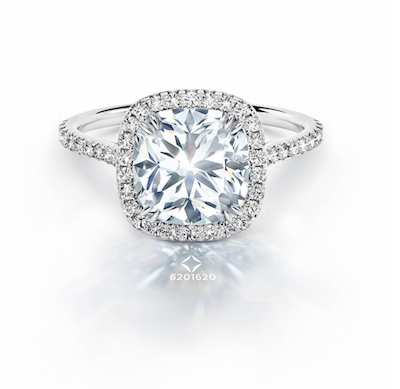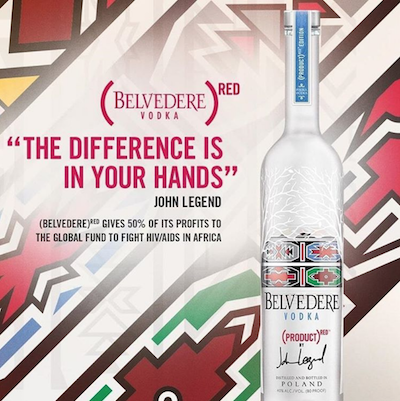As consumer expectations lean increasingly toward transparency, a brand’s dedication to sustainable business practices is more important than ever before, said panelists at Luxury FirstLook: Time for Luxury 2.0 on Jan. 18.
During the “Sustainability is the New Black: Consumers Expect Ethical Transparency” session, panelists from the jewelry, spirits and hospitality sectors discussed how their businesses approach corporate social responsibility. Even at the most subtle level, these sustainable business practices are necessary in capturing consumer market share as the concept has gone mainstream.
“Although the concept has gone through green, eco, ethical, transparent, sustainable and so on, today it is reality that a brand that does not invest in corporate social responsibility is a brand that probably will not survive the next 100 years,” said Diana Verde Nieto, cofounder of Positive Luxury.
“This is becoming fundamental for what brands do,” she said. “What’s happening today, this feeling of incredible disappointment is an opportunity for brands.
“The brand you buy represents who you are and your values. This is becoming part of the day-to-day of every young consumer, and in fact, everyone. What unites us all is that transparency and trust is the one thing that drives the leadership of these companies.”
Luxury Daily produced Luxury FirstLook 2017: Time for Luxury 2.0
Working toward a common goal
While discussing sustainability, it was agreed upon that luxury brands have not always been leaders in this area. But, methods are evolving to ensure that luxury brands lessen their environmental footprint.
Each participant outlined how their business approaches sustainability and how there is a sense of pride in sharing and promoting these values to consumers. In turn, consumers who are aware of a brand’s efforts are more likely to remain loyal and return for future interactions.
De Beers’ Forevermark, for example, is a brand manifestation of the British jeweler’s sustainable business practices. Forevermark holds sustainability at its core and was created to help put the jeweler’s ethical mining practices within consumer view.
While the brand’s shareholders were always aware, it was a “best-kept secret” and not public knowledge among those shopping De Beers’ diamond jewelry.
Through Forevermark, consumers can trace the lifecycle of their diamonds from mine to finished engagement ring, for instance. This has helped De Beers to instill trust among its consumers that none of its diamonds are unethically mined nor are they Blood Diamonds (see story).
De Beers and Forevermark’s sustainable practices also extend to wildlife, particularly rhinos, and environmental conservation.

Forevermark diamonds are inscribed with a number linked to its journey
At Moët Hennessy’s Belvedere vodka the journey toward sustainability has created a new pillar for brands to consider. For Belvedere, and others in the spirits category, it needs to be a brand that looks good, tastes good and does good.
In addition to using no sugar or additives in its vodka, Belvedere concentrates on its environmental impact. The vodka distiller has made strides in this area, cutting down the carbon footprint of each bottle produced by 46 percent.
But, Belvedere does not widely broadcast its environmental achievements often because consumers expect a footprint of zero. Instead, Belvedere promotes its social agenda of doing good in other ways such as its affiliation with Bono’s (RED).

Belvedere vodka supports (RED)
SH Group’s 1 Hotels, launched two years ago, is a mission-driven hospitality brand that set out to show that sustainability can be a beautiful, luxury experience without lowering the expectation bar or coming off as too “crunchy.”
With sustainability as its foundation, 1 Hotels has seen goodwill expressed by its guests due to its transparency efforts whether the results are good, bad or ugly.
Guests are able to explore 1 Hotels’ online dashboard that tracks each property’s water usage and waste or a particular room’s consumption during a stay. The level of transparency, even if water usage is up, for example, becomes a telling narrative that guests are able to interact with and celebrate in the hotel’s success all while legitimizing its approach.

1 Hotels Central Park in New York
While each panelist’s sustainability strategy differs, the main takeaway is that for a brand’s corporate social responsibility practices to be taken seriously by consumers it must be part of the company’s story, be easily understood by consumers and, most importantly, be human.
With purpose
Disruptive factors and a climate of uncertainty have put pressure on the retail environment, but the brands that will weather the storm best are those embracing purposeful business models.
In “Shopping with a Purpose: The New Retail Revolution,” Positive Luxury outlines how luxury brands fit into the purposeful business movement, how consumer behavior has pushed the model to the mainstream and why purpose-based companies will be best positioned to survive. Although brands in the luxury ecosystem are not always known to be cutting edge, they are traditionally seen as “the vanguard of inspirational leadership,” a characteristic that may spearhead the category’s move toward sustainability.
Never before has the retail environment been impacted by so many disruptive factors at once. In a relatively short time frame, luxury brands have had to navigate new consumer demographics, emerging markets, technological advancements and where to invest internally, whether that means software or store design.
In addition to these factors, consumer behavior has changed to bring forth new desires, needs and expectations.
With so much influx, the brands that respond by leading with purposeful efforts, such as transparency and sustainability, nurturing customer relationships and giving back to the community will be positioned to survive (see story).
“[Sustainability] is not necessarily the first thing we’re always talking about,” said Charles Stanley, U.S. president of De Beers‘ Forevermark.
“In the end, it’s our hope that when a consumer buys a Forevermark diamond, we want them to feel proud to own and to celebrate that diamond, forever,” he said. “The whole ethical underpinning put into Forevermark is to get to that end consumer takeaway.
“The challenge we’ve had is effectively communicating that without destroying the luxury myth. We could sprout on about facts, but you have to maintain a strong emotional connection.”
Featured Image courtesy of SH Group’s 1 Hotels
This article first appeared in www.luxurydaily.com
Seeking to build and grow your brand using the force of consumer insight, strategic foresight, creative disruption and technology prowess? Talk to us at +9714 3867728 or mail: info@groupisd.com or visit www.groupisd.com




